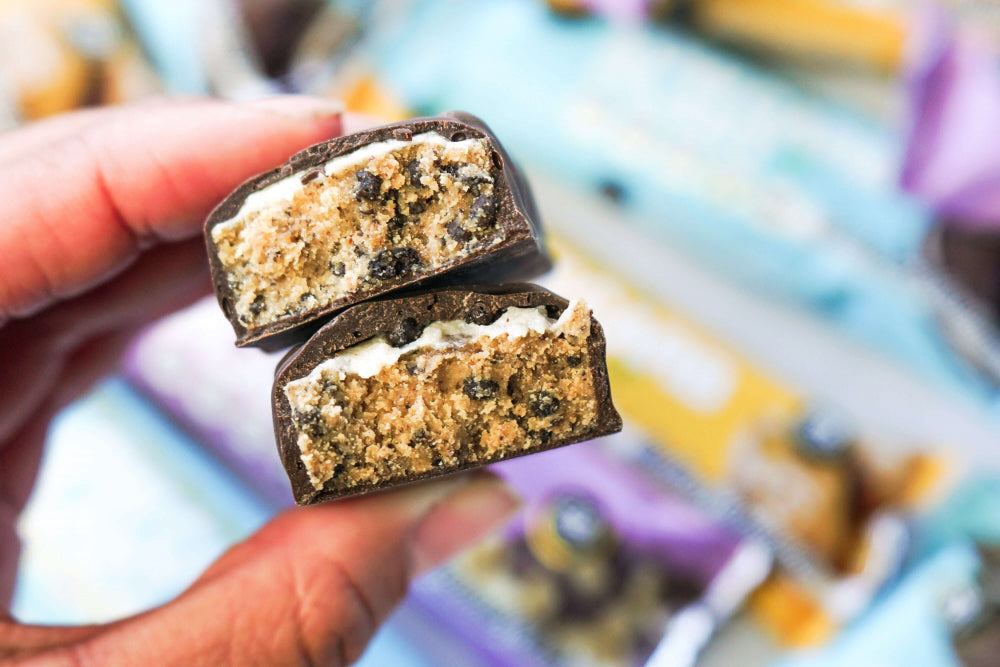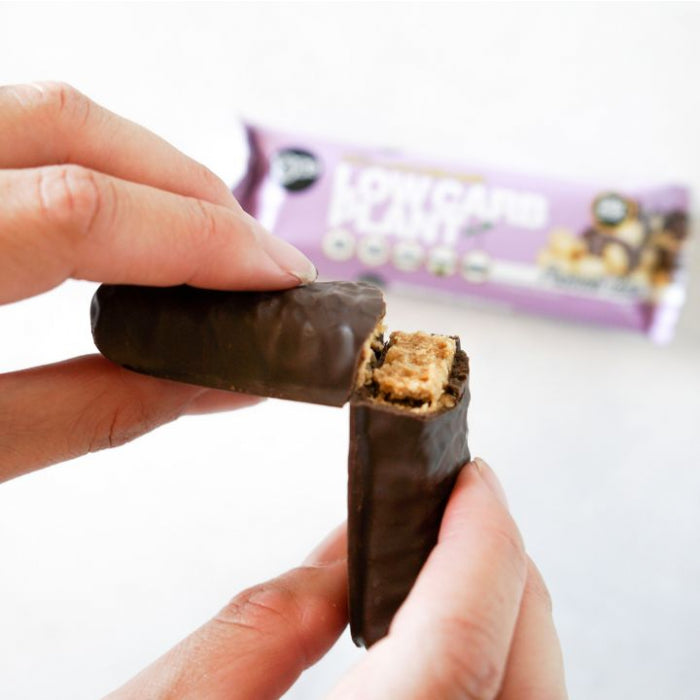Tatiana Marinho - BSc Athlete
Practising Nutritionist | B.P.H. Nutrition | Master of Nutrition & Dietetics | Master of Public Health.
Those following a vegan and vegetarian diet often struggle to reduce carbohydrate and/or increase protein intake in their diets. When it comes to snacks, it is even more difficult to find a high protein and low carb alternative. Also, people who are allergic or intolerant to dairy report difficulties to find bars and snacks that are low in carbohydrates/sugars and with a considerable amount of protein.
So, with this in mind…
This week BSc is launching yet another amazing product to our ‘High Protein Low Carb’ range. This time, listening to public demand, we decided to make a Plant Bar that is dairy-free, egg and gluten-free and completely vegan-friendly. This is a first in Australia and we are excited to explain why we put the development of this product as one of our top priorities.
Protein Intake and Vegan/Vegetarians
Vegan diets have no animal products and, even though maybe relatively low in fat, are high in carbs or fail to meet protein intake requirements. That is because most good sources of plant protein are often combined with carbohydrates, such as beans and other legumes. While other sources of plant protein like nuts are very high in fats. This can create a macronutrient imbalance in an individual’s diet when trying to consume a diet high in protein.
Why is protein important?
Proteins are an important part of a balanced diet and assist with muscle gain and weight loss. Proteins can help:
→ Support muscle health Increase metabolism
→ Increase satiety
→ Control hunger
→ Help control blood sugar levels and insulin response
Effects of nutrients on hormones and brain
Different foods have different effects on hormones and brain centres that control eating behaviours and hunger.
Simple sugars, for example, have been found to dysregulate the brain and hunger hormones. Therefore, simple sugars (such as fructose), may have the same number of calories per gram as other carbohydrates, but fail to stimulate satiety centres in the brain and can cause insulin resistance.
However, whole fruits, which are known to contain a lot of fructose, also contain dietary fibres and micronutrients that are important to regulate blood sugar and insulin levels. Therefore, consuming the same number of calories as an apple or as a glass of apple juice will have completely different physiological and biochemical effects.
Protein-rich snacks
It has been found that it is important to consume a consistent amount of protein throughout the day to help with muscle support and hunger control. That is, if I am to consume 100g of protein a day, it is more beneficial to consume 5 meals with roughly 20g of protein each than consuming 100g of protein with dinner. The latter will increase stress hormones in the body, will allow for blood sugar and insulin spikes and dysregulate hunger hormones.
For those following a vegan or vegetarian diet, trying to reach a considerable amount of protein through healthy and balanced snacks can be difficult. Even more difficult is to find convenient and tasty snacks. We must agree that eating a can of beans between your gym session and work is not the most convenient thing to do. Muesli and nut bars usually contain high fructose syrup, are dry and contain insufficient amounts of protein.
Therefore, I recommend either a low carb protein shake with a piece of fruit or a protein bar. This will help control hunger, avoid sweet cravings, and support muscle building and recovery mechanisms.
V 170 Calories
V 13g Protein
V Less than 3g of Carbs
V Less than 2g of Sugars
V More than 3g of Dietary Fibre




